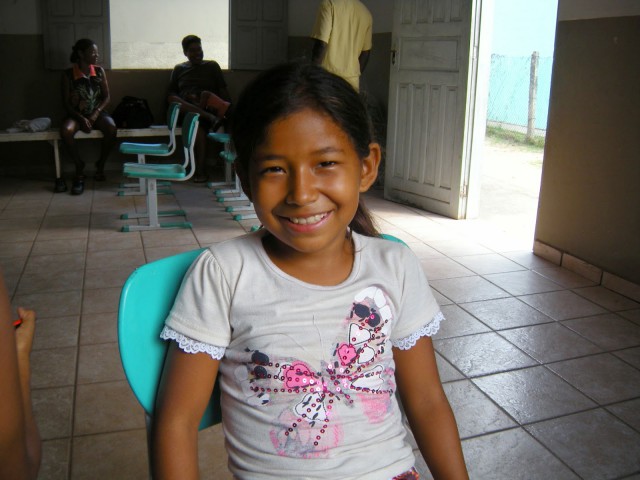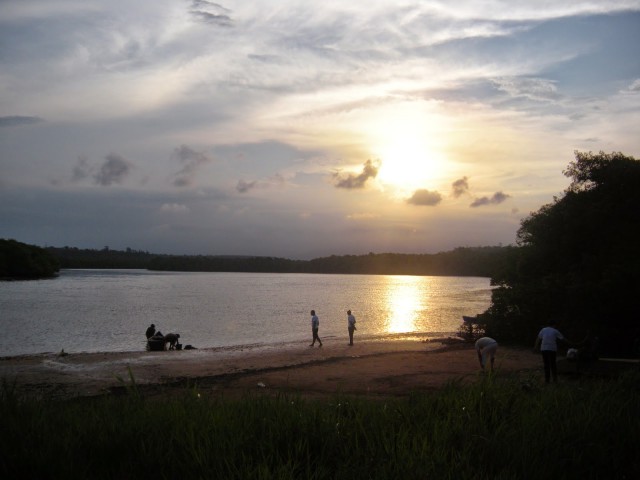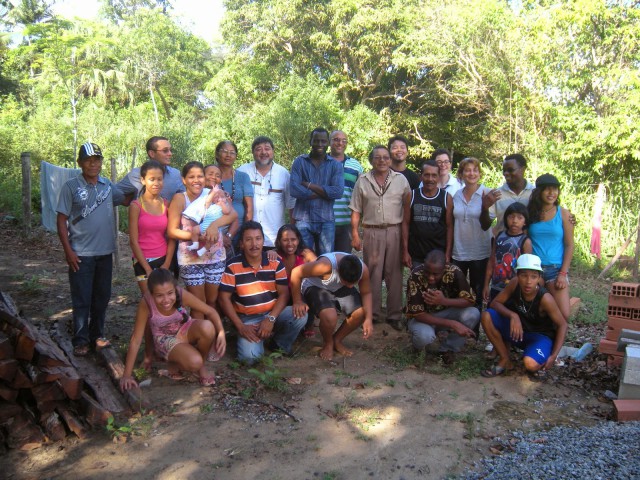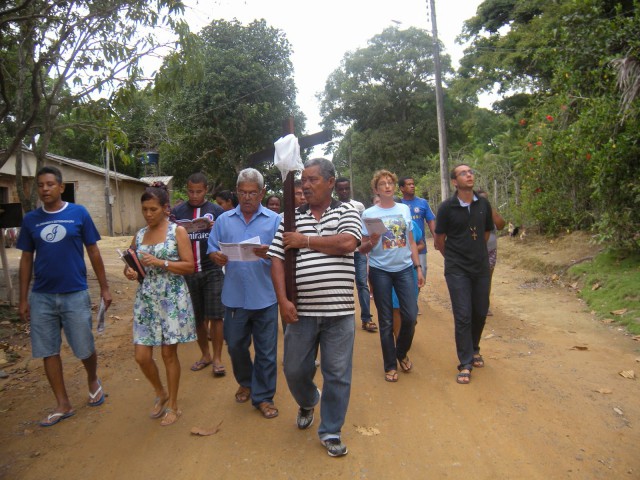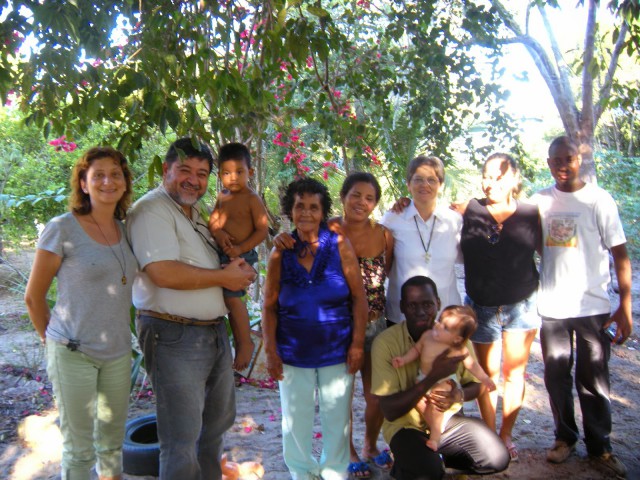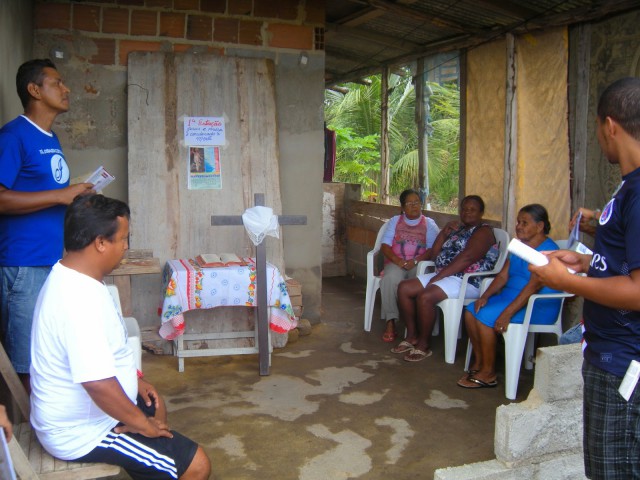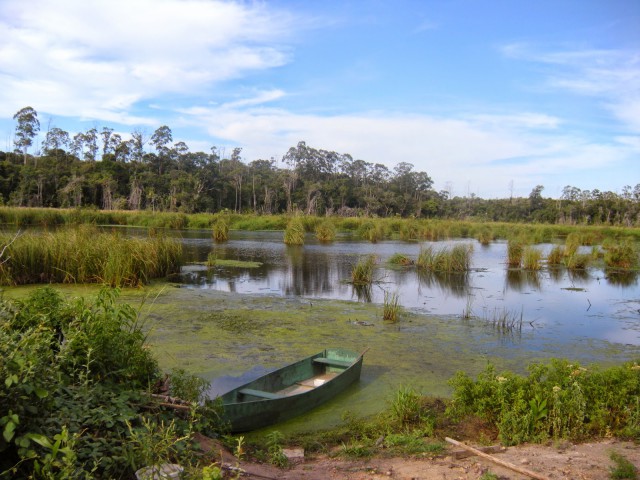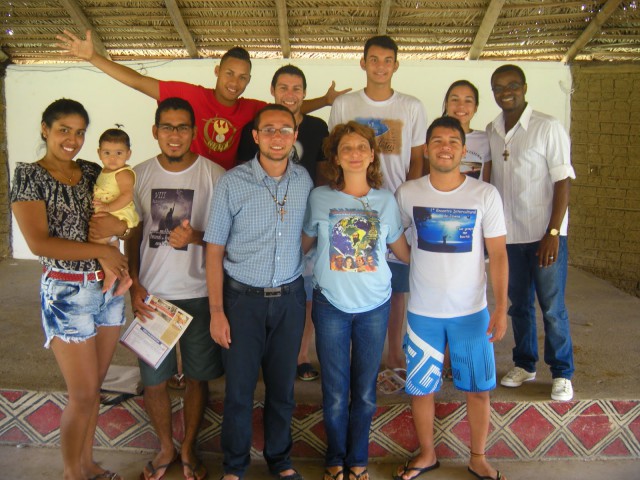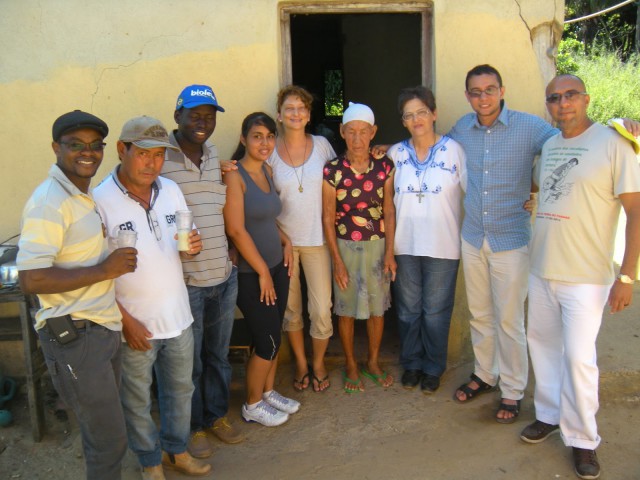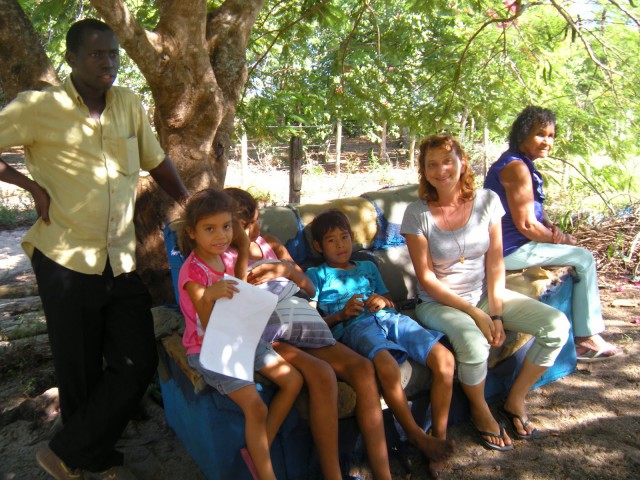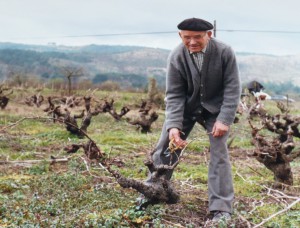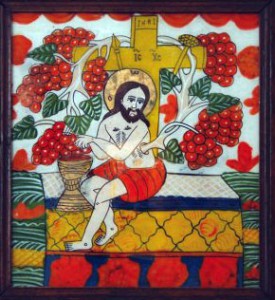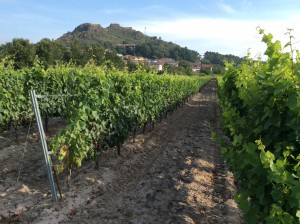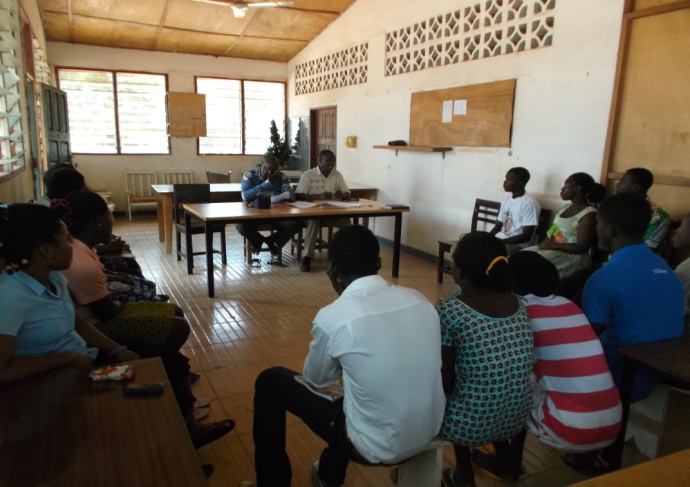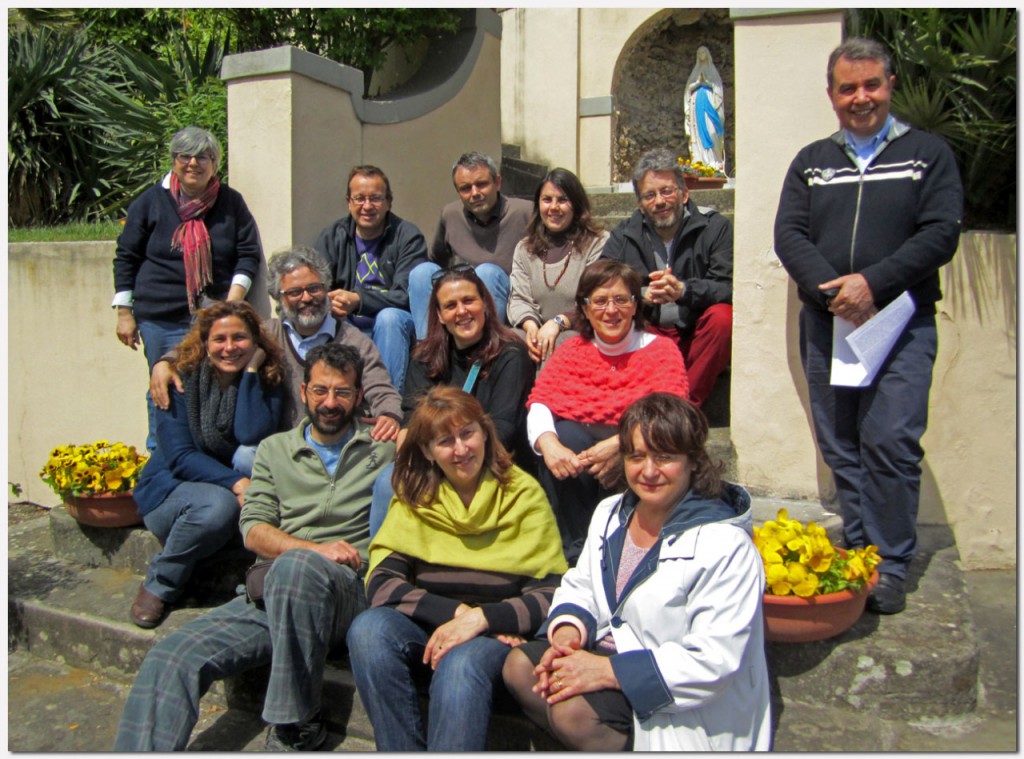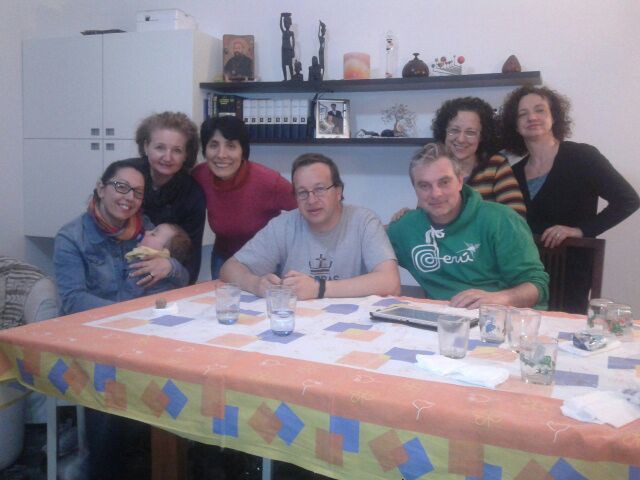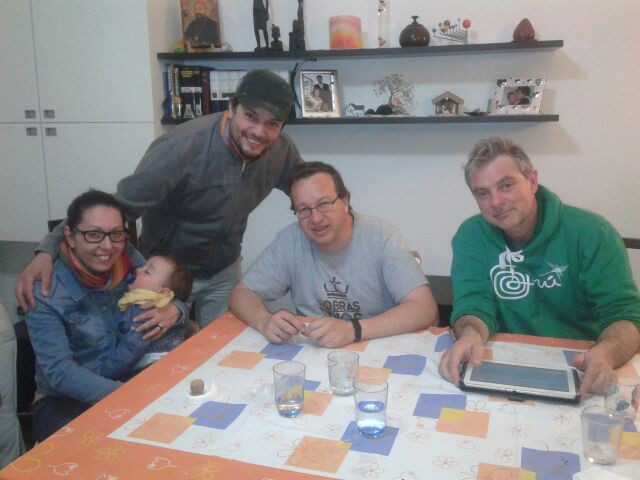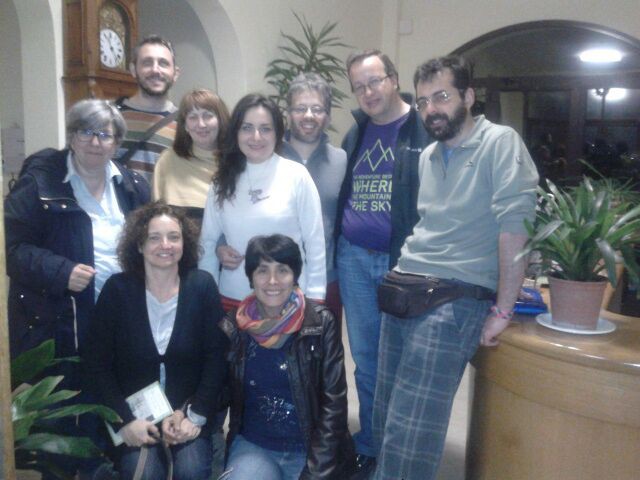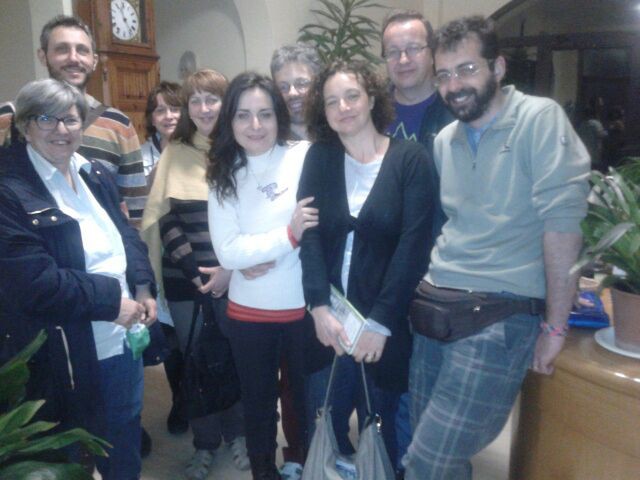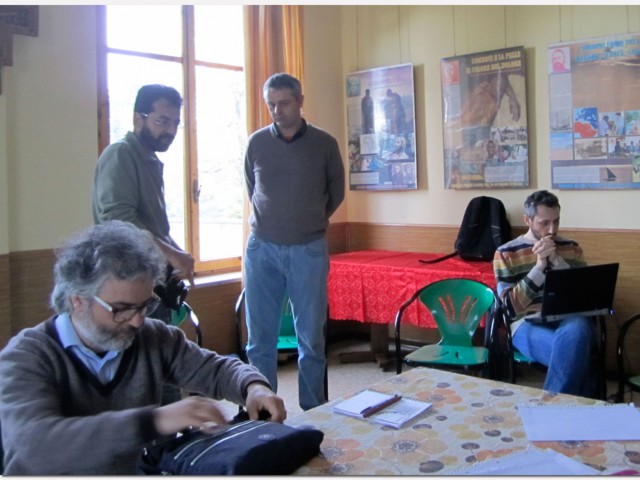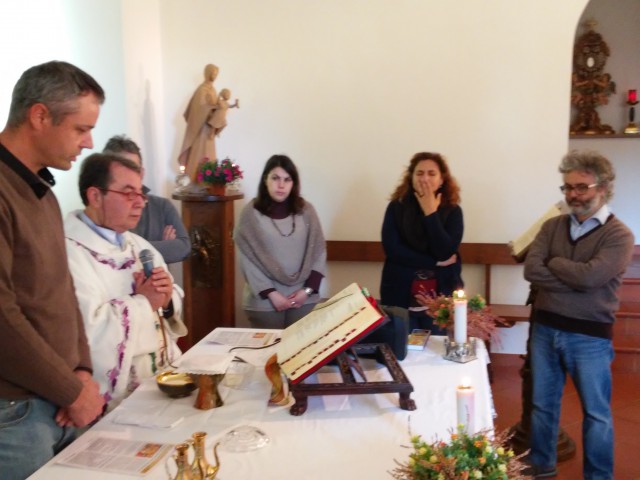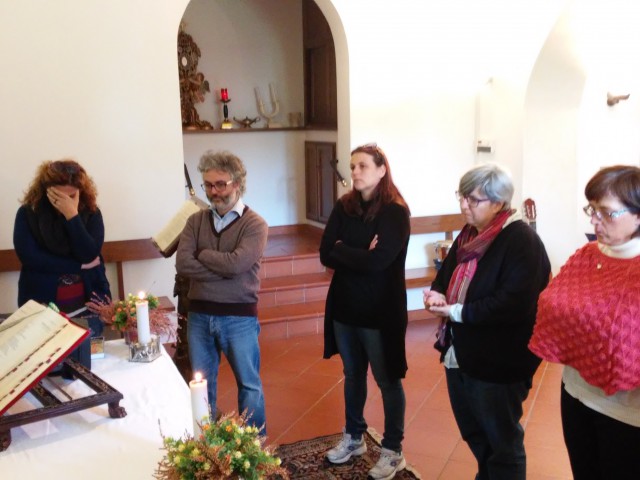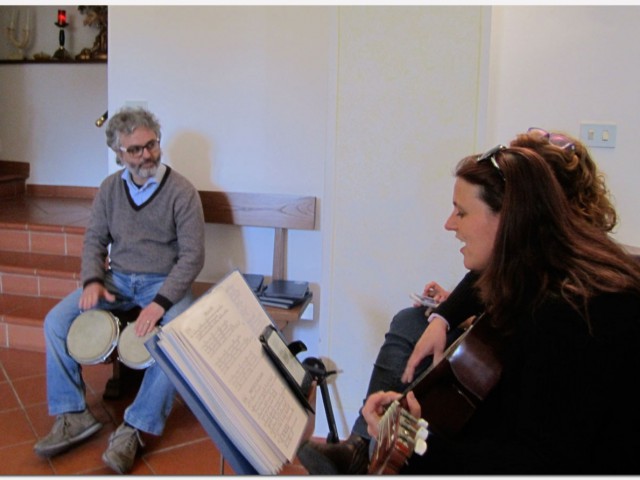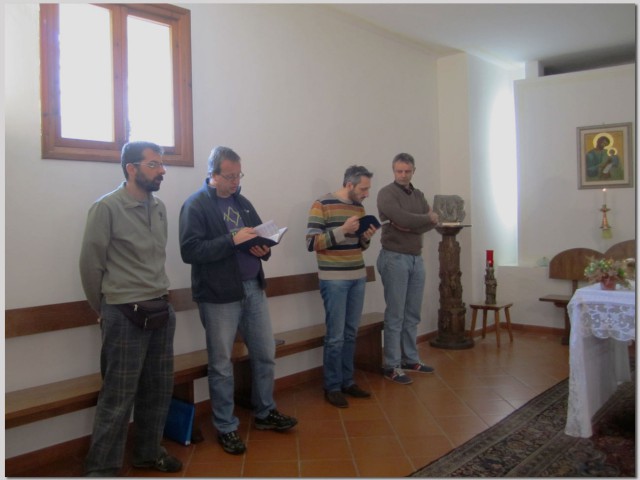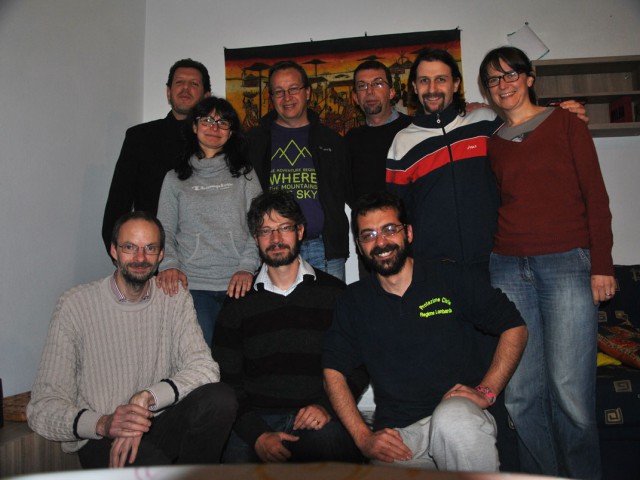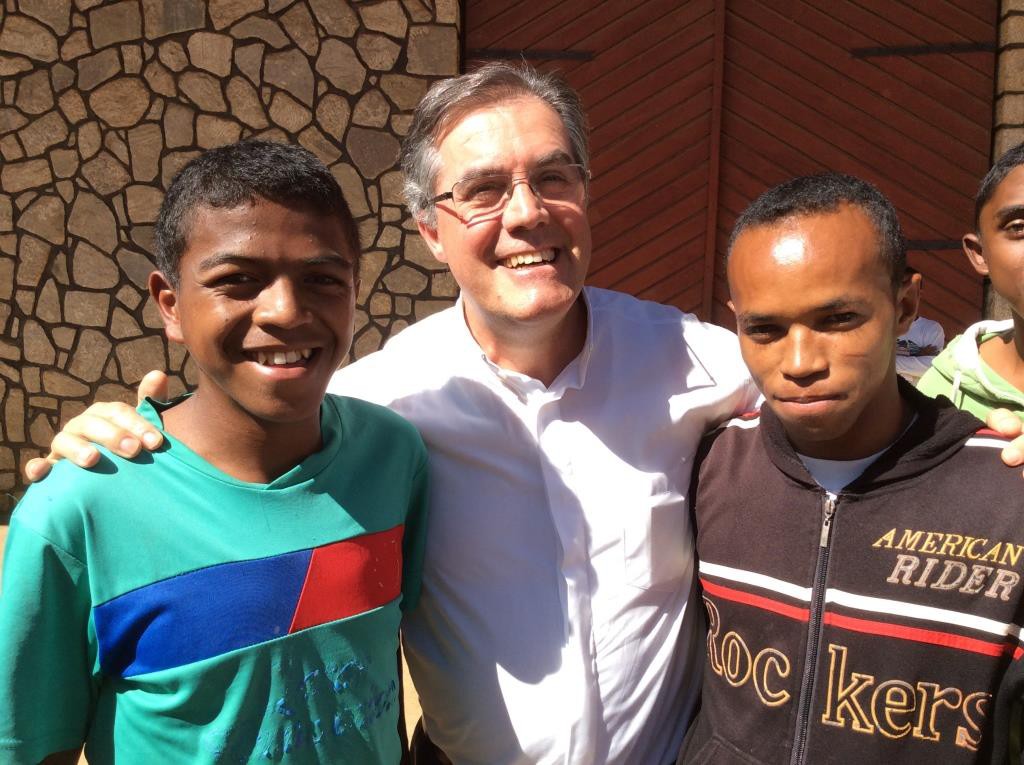
The following reflections are simply meant to be comments on the second goal proposed by Pope Francis in his Apostolic Letter to all religious on the occasion of the Year for Consecrated Life, in November 2014, to help us to live as Comboni missionaries in our time. “The passion for an ideal – in our case the mission – is related to enthusiasm. Passion is not gained once and for all. It is like a plant that we must care for and nourish every day. Because of this it is necessary to make use of such initiatives as that which the Pope proposes to us for the Year of Consecrated Life, to review how we live our consecration and examine our ties with the Gospel, the Institute and the mission”, writes Fr. Rogelio Bustos Juárez, mccj.
LIVING THE PRESENT WITH PASSION
“The past, which is memory, and the future, which is imagination, we evoke by the present”
(Saint Augustine)
- The sequela Christi as primary reference point
When we speak of the birth of charisms, the history of religious life teaches us that the starting point of founders and foundresses was the Gospel. It was through their attentive reading of the Good News that they came to know Jesus Christ, received the Word and discovered how they could follow Him. Some placed the accent on the thaumaturgical Jesus who healed the sick, others placed it on Jesus the Master who, with authority, taught new things; we, as missionaries, have been struck by the itinerant Jesus, intent on proclaiming the Gospel to all peoples, since He was sent for this reason.
From this were born the rules and constitutions as a theoretical basis for making the charismatic intuition come alive. In the Rules of 1871, our Founder said: It is certain that, a humble spirit that sincerely loves its vocation and wishes to be generous with its God, will heartily observe them, considering them as the way marked out by Providence, but it is important to state clearly that the Constitutions, the Rule of Life and the traditions of any Institute whatever, will remain vigorous only when and if they continue to draw inspiration from Gospel values.
In this sense the Pope writes: “The question we are invited to ask ourselves during this Year is whether and how we allow ourselves to be questioned by the Gospel; whether it is truly the ‘vademecum’ in our everyday lives and in the choices we are called to live by. This is demanding and requires to be lived radically and sincerely. It is not enough just to read it (even if reading and studying it are extremely important), it is not enough just to meditate on it (and this we do joyfully every day). Jesus asks us to put it into practice and to live according to his words.
I am not at all certain that, having finished our basic formation, we have all taken seriously our ongoing formation. Today, people speak of the liquid society and liquid love (cf. Z. Bauman), with reference to the speed with which the world, society, the Church and religious life are changing.
The Gospel is the source which, with its dynamism and its relevance, may indicate paths on which to direct our steps. In this regard, we may find useful the third chapter of Evangelii gaudium (nos. 111-173) in which Pope Francis invites us to revisit the way we approach the Word we proclaim.
It is not enough to be experts in Biblical or pastoral theology if we are unable to practice what we preach. We are invited to revisit the place the Word has in our lives; whether it is truly the reliable guide to which we have daily recourse and which, little by little, makes us resemble the Master.
- Conforming our life to the model of the Son
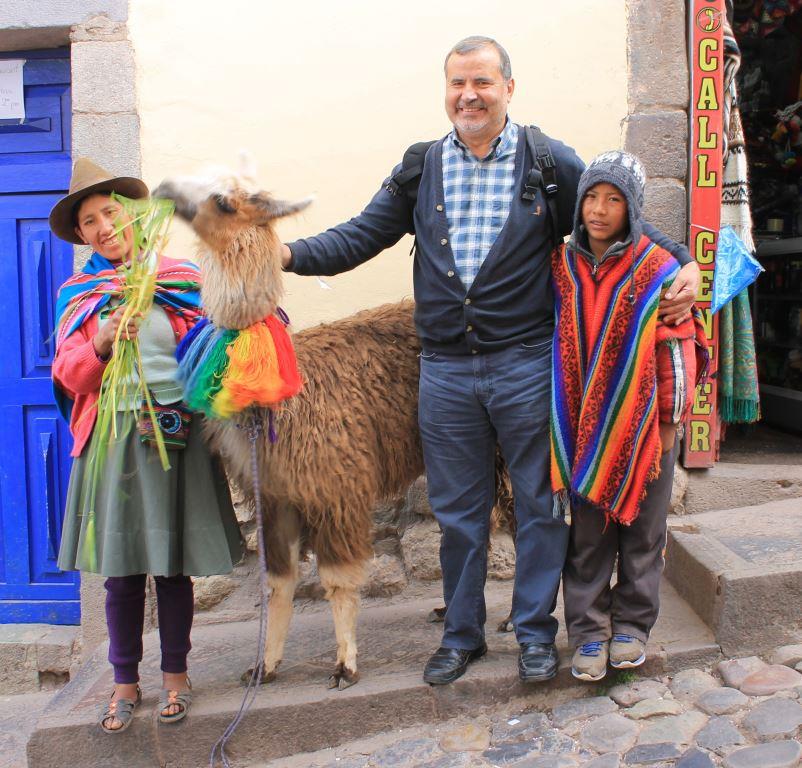
If it is Jesus Christ that we follow, it will be useful for us to reflect upon the second half of our name, “of the Heart of Jesus”, since it will enable us to deepen our identity. When, in 1885, through Mgr. Sogaro, the Holy See allowed us to become a religious Congregation, we were called: Sons of the Sacred Heart of Jesus. In 1979, reunification was attained and we were reborn with the name Comboni Missionaries of the Heart of Jesus. The fact that the reference to the Heart of Jesus was kept is interesting.
Pope Francis, in his letter, maintains that, if the Lord is our first and only love, we will learn from him what love is and how to love since we will have his very own heart. That is, we will identify ourselves with him. This is what some Fathers of the Church meditated upon and passed on to us.
Saint Irenaeus of Lyons, for example, speaks of “Jesus Christ who, for the abundance of his love, became what we are in order to make us what He is” (Contra haereses, Preface to book V).
Saint Gregory Nazianzen develops another aspect: “In my earthly condition, I am bound to the life of here below, but being also a divine particle, I bear in myself this desire for the future life”.
Man is not only ordered morally, regulated by divine decree, he is also part of the “genos”, of the divine line, as St Paul says: “we are the children of God” (Ac 17, 29).
Saint Athanasius, in his Tract on the Incarnation of the Word, maintains that the divine Logos became flesh, becoming like us, for our salvation. And, with a well-known phrase, he says that the Word of God “became man so that we could become God; he became corporeally visible so that we might have an idea of the invisible Father, and endured the violence of men so that we might inherit incorruptibility” (54, 3).
Our Founder, St Daniel Comboni, making his own the spirituality of his time, was able to respond to the challenges of the mission by drawing inspiration from the spirituality of the Sacred Heart, broadening its meaning and giving it a more social and missionary character.
To sum up, if those who approved our name thought it necessary to include in it reference to the Heart of Jesus, it is therefore necessary that we increasingly identify ourselves with His sentiments and transform them into attitudes.
We follow Jesus not in any way whatever but obliging ourselves to be “cordial” in our manner of working, to be a reflection and an expression of the sentiments of the Son of God. All this has its consequences in personal and community life. Even to the point of becoming an existential parable, a sign of God Himself in the world (cf. Vita Consecrata n. 22).
3. Faithful to the mission entrusted to us
The third point invites us to review our fidelity to the mandate we received from our founders. A charismatic intuition is, at the same time, gift and responsibility. Gift, because we did nothing to deserve it through the persona and work of our founders which, however, has been recognised by the Church and we must, then, avoid distorting or altering it, but be the ones who continue this gift which has been placed in our hands.
At this point, there are two possible ways to go: either we cling to the thought and work of our Father and Founder and, out of charismatic fidelity, try to reproduce, sine glossa, that which he did, or, instead, we act in such a way that all we do, does not resemble at all what was suggested or proposed by our founders as we work in complete freedom, interpreting the new challenges as we please with a scribbled reproduction of the inheritance we received 150 years ago.
I think it is best we avoid these two extremes. It is, in fact, necessary to take the torch from the hands of our predecessors with a clear mind so as to discover how we must respond to the challenges of the present without weakening the charismatic originality. This, it seems to me, was the aim of the Ratio missionis and the work of re-qualifying our commitments upon which the Institute has insisted in recent years.
Pope Francis exhorts us to ask ourselves if, in this Year of Consecrated Life, our ministries, our works and presences correspond to what the Spirit asked of our founders. In short, he invites us to live in an attitude of constant discernment so as not to go wrong but to be an expression of that ecclesial charism we have received.
4. Becoming experts in communion
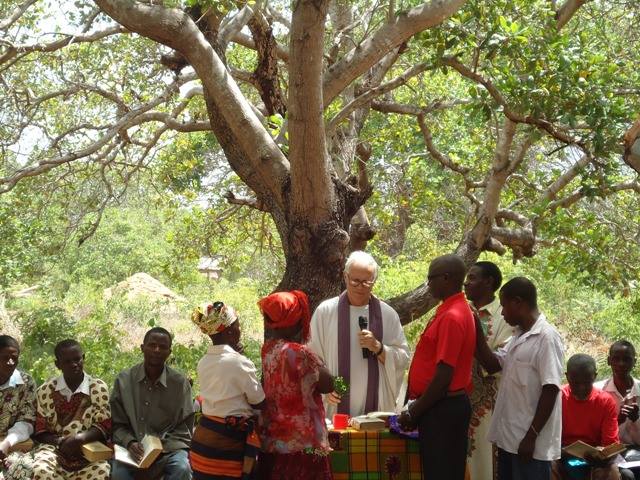
With things the way they are and considering the value fraternal life has for us, it would be opportune to question ourselves about the quality of our life in common. In this regard, our Founder was very clear in his description of the characteristics of the Institute: “This Institute, then, becomes like a small Cenacle of Apostles for Africa, a centre of light sending to the centre of Africa as many rays as are the zealous and virtuous missionaries who go out from it. These rays of light, bringing warmth as well as illumination, cannot but reveal the nature of the Centre from which they emanate” (Writings 2648).
It is interesting to note the image of the “Cenacle of apostles” used by St. Daniel. The cenacle is a room on the upper floor where the Master entrusted to his disciples what he bore in his Heart on the vigil of his greatest gesture of self-giving. Being together is that reality which transcends us and brings us closer to God when we live in communion with our brothers. It is also an intimate place where we may open our hearts to our companions to show ourselves as we are. It is there where we share that which we are, discovering our gifts and limits and those of the people who live with us. Theologically, the Trinity is our model: three distinct persons but only one God. Living together helps us to share our gifts and to welcome the richness of those who live next to us. We are different but we cultivate and promote unity by means of respect and tolerance. In an international Institute like ours, the challenge is greater but not impossible.
In the image used, there is also mention of apostolicity. From the “cenacle of apostles” there will come forth like “rays” solicitous and virtuous missionaries to bring light to situations of obscurity: the Pope speaks of a clash, of difficult coexistence among different cultures, the overpowering of the weakest and inequality, and we could continue with a list of situations we know and are faced with in the different parts of the world where we work. To all of these we are asked to bring a word of hope and encouragement, illuminating the darkness and sharing an experience of fraternity, fruit of the communion we have experienced. We will not base the strength and effectiveness of our missionary vocation on the material resources we may bring to the mission but on our willingness to share our authentic experience of God and the amount of humanity we can transmit. The quality of our mission will depend on the time we are prepared to dedicate to people emarginated from society. Our place, as missionaries – and the majority of local Churches recognise this – is there where there are tensions and differences, where there are situations incompatible with the human condition. It is there we must bring the presence of the Spirit, seeking to give witness of unity (Jn 17, 21), as the Pope reminds us.
All of this is expressed in a proper style that must be one of listening, of dialogue and collaboration with the persons with whom we come in contact. We may well be dynamic and capable people but, if we are not able to work as a team, it will be hard for us to witness to the Trinitarian love on which community life is based. Differences must not prevent us from giving witness of unity before the Church and the world.
5. Passionate for the Kingdom
A final consideration: to follow Jesus, to want a heart like his, to continue to be in love with the mission and to be builders – and not just users – of communities, will be possible in so far as we keep alive the passion for the Kingdom. If we look closely, many of us show a fair degree of irresponsibility in the way we administer the time and goods we have at our disposal. If we lose touch with people, it will be difficult to imagine what is lacking to the majority of our people. In his letter, quoting Pope John Paul II, Pope Francis affirms: “The same generosity and self-denial that moved the Founders must move you, their spiritual children, to keep alive the charisms which, with the same power of the Spirit who brought them about, continue to grow and to adapt themselves, without losing their genuine character, to place themselves at the service of the Church and bring to completion the establishment of his Kingdom”.
Why do some of our candidates later lose their initial enthusiasm when they enter the Institute? Why, for many of us, is it easy to cease to be Combonians when there appear difficulties and disagreements? Why is it increasingly more difficult to obey and to respond to the challenges that come our way? Why has our passion for the Gospel and for all that concerns the mission diminished? Why do so many live like pensioners before their time? Is it not, perhaps, because we have neglected some fundamental reference points linked to our identity, leading us to go off the road or lose our way?
The passion for an ideal – in our case the mission – is related to enthusiasm. Passion is not gained once and for all. It is like a plant that we must care for and nourish every day. Because of this it is necessary to make use of such initiatives as that which the Pope proposes to us for the Year of Consecrated Life, to review how we live our consecration and examine our ties with the Gospel, the Institute and the mission.
Fr. Rogelio Bustos Juárez, mccj





